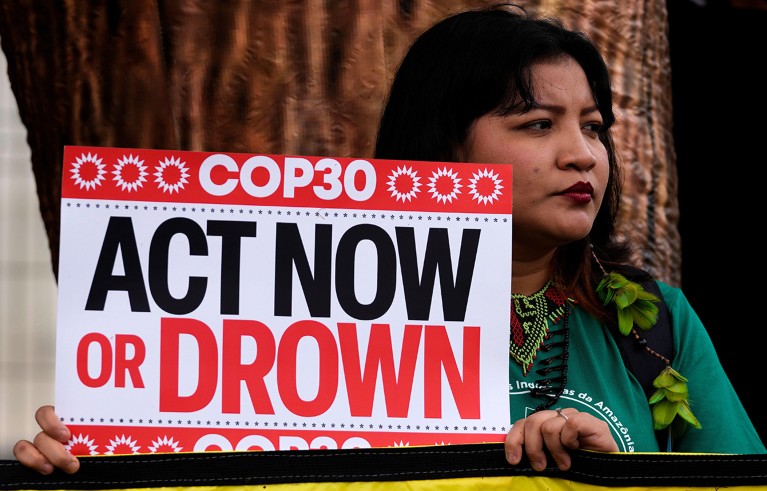The ‘implementation COP’: why the Belém summit must ratchet up climate action
Article meta
Article Date: 2025-11-04
Article URL: https://www.nature.com/articles/d41586-025-03567-7
Article Image: https://media.nature.com/lw767/magazine-assets/d41586-025-03567-7/d41586-025-03567-7_51659016.jpg
Summary
The Nature commentary argues that COP30 in Belém must move from negotiating rules and targets to delivering on them. While the Paris Agreement created a framework of iterative pledges, global emissions have risen about 10% since 2015 and impacts such as extreme storms, marine heatwaves and coral loss are intensifying. Nationally Determined Contributions (NDCs) submitted since 2020 show improvement in scope and coverage, but the collective ambition falls far short of what is needed to keep warming near 1.5 °C. Climate finance also remains well below pledged and aspirational levels, and delegates must agree practical steps to scale up funding, adaptation and implementation mechanisms. The piece dubs COP30 the ‘implementation COP’ — the moment to turn promises into measurable action.
Key Points
- Global greenhouse-gas emissions have risen about 10% since the 2015 Paris Agreement and reached a new peak (~53 billion tonnes CO2-eq in the last year).
- COP30 is framed as the ‘implementation COP’ — the focus should be on delivering and financing existing commitments rather than reworking rules.
- New NDCs are stronger and more comprehensive, but aggregated commitments still fall far short of the reductions needed for 1.5 °C.
- Climate finance is insufficient: current flows exceed US$100 billion but fall short of targets (aims of US$300 billion by 2035 and aspirational US$1.3 trillion).
- COP remains the only global forum where complex cross-border climate issues can be negotiated; delegates must send a clear signal to maintain momentum despite political headwinds.
Content Summary
The article reflects on the ten years since COP21 and the Paris Agreement, noting that the iterative pledge-and-review model has improved transparency and breadth of national plans but not yet delivered the emissions cuts or finance required. It highlights recent scientific findings on climate impacts (marine heatwaves, stronger storms) as evidence that the cost of delay is increasing. The UN secretariat’s analysis shows better-quality NDCs with more coverage of adaptation and economy-wide targets, but collective ambition is still vastly inadequate. The author emphasises that COP30 must focus on implementation: operationalising finance, adaptation, loss-and-damage mechanisms and ensuring nations commit to concrete, accountable steps.
Context and Relevance
This commentary is timely for policy makers, climate practitioners and businesses tracking global climate governance. It links scientific evidence of escalating impacts to the political challenge of converting pledges into action. The piece matters because it frames COP30 as a test of whether international processes can shift from negotiation to delivery — especially on finance, adaptation and market mechanisms — at a moment when extreme events and economic pressures are increasing the stakes. For anyone planning climate strategy or monitoring global policy trends, the article clarifies where shortfalls remain and what outcomes to watch for from Belém.
Why should I read this?
Short version: if you care whether global climate pledges actually turn into real-world cuts and cash, this is worth a skim. It cuts through the COP noise and explains why Belém needs to stop debating rules and start forcing delivery — especially on finance and implementation. It’s a quick, sharp reminder of what’s at risk if governments kick the hard stuff down the road.
Author style
Punchy and urgent — the piece doesn’t just report facts, it pushes the reader to notice that the ‘future’ promises of Paris are now firmly in the present and require immediate, concrete follow-through.

